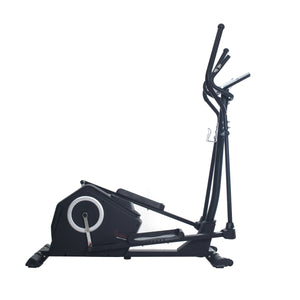You’ve probably been hearing about vitamin E for almost as long as you’ve known where to find the letter in the alphabet.
But do you know:
- Why you need Vitamin E, and
- What foods are high in Vitamin E?
If you answered “no” to either of these questions (or both), worry not. We’re here to clear all of this up for you so you can be an antioxidized, heart-strong, super-immune Vitamin E-xpert!
Overview
Vitamin E is a group of eight chemical compounds, and the main one we’re interested in is tocopherol. (So, if you see “mixed tocopherols” in an ingredient list, now you know what it is.)
Vitamin E is a fat-soluble nutrient, meaning it requires fat to be properly absorbed and is stored in fat. It is important to know that it IS possible to get too much of it. (More on this later in the section “Should I supplement with Vitamin E?”)
So why is Vitamin E important?
You may have heard about “free radicals.” These are molecules in the body with incomplete structures that damage other molecules in the process of trying to “complete” themselves.(1)
This cascade-like process is known as oxidation and is one of the chief forms of inflammation.(2)
Now, I know you’ve heard of “antioxidants.” These are a type of molecule that have extra components in their structures which allows them to “donate” to the structures of free radicals, effectively “completing” them and stopping their inflammatory onslaught.(3)
Vitamin E is one of the most potent of these antioxidants.(4)
If that wasn’t enough, Vitamin E is also responsible for the proper functioning of immune and inflammatory cells. It is also responsible for what’s called cell signaling, which ensures the proper function of key enzymes in your body that mediate cell health, blood platelets, and even your cholesterol.(5, 6)
And, like many other nutrients, Vitamin E is important to countless other body mechanisms and organs, including your vision, heart health, and premature aging prevention.(7) Among others!
All good stuff, right? Now onto the main question.
What Foods Are High in Vitamin E?
Well, for all you plant-eaters out there, you’ll be pleased to know that Vitamin E is found predominantly in plant-based sources.
But, for any carnivores or the veggie-averse, don’t worry – egg yolks, chicken thighs, and liver have some vitamin E as well!
So what foods are the highest in Vitamin E, specifically?
Here’s a quick list:
- Nuts and Seeds, especially:
- Almonds
- Sunflower seeds
- Hazelnuts
- Vegetables, especially:
- Swiss chard
- Broccoli
- Red sweet pepper
- Turnip greens
- Broccoli
- Fruits, like:
- Avocado (yes, avos are fruits!)
- Kiwi
- Mango
- Plant-Based Oils, especially:
- Sunflower oil
- Safflower oil
- Wheat germ oil
- Fortified Foods:
- Certain cereals
- Peanut butter
- Some seafood
- Fatty fish like
- Salmon
- Trout
- Mullet
- Abalone
And now you know what foods are high in Vitamin E!(10) Now for an important question when it comes to any nutrient in this day and age:
Should I Supplement With Vitamin E?
Except in cases of severe malnourishment such as anorexia or third world living conditions, Vitamin E deficiency is rare.(11)
That said, deficiency can result in muscle weakness, impaired vision, damage to red blood cells, movement and coordination problems, and probably worst of all: ACNE!(12)
(Remember, only a medical professional can diagnose a vitamin deficiency. Not your trainer, not your guru, and not yourself! Unless, of course, you ARE a medical professional. Okay end of rant.)
Before we talk about supplementing, let’s have a look at the recommended daily allowance for Vitamin E, as reflected in this chart:(13)
| Age | Males | Females | Pregnancy | Lactation |
| 0–6 months* | 4 mg | 4 mg | ||
| 7–12 months* | 5 mg | 5 mg | ||
| 1–3 years | 6 mg | 6 mg | ||
| 4–8 years | 7 mg | 7 mg | ||
| 9–13 years | 11 mg | 11 mg | ||
| 14+ years | 15 mg | 15 mg | 15 mg | 19 mg |
As mentioned earlier, Vitamin E is fat-soluble.(14) If you’re having trouble getting enough of it, it may be because you’re cutting your fat intake or you’re exceptionally lean or underweight.
To ensure absorption, it is good to pair your vitamin E-rich foods with a fat source. Since many of them, like nuts, seeds, avocado, and oils contain fat, you should be good to go.
The upper limit for daily Vitamin E intake is 1,000mg, or 1500 IU, per day. Based on clinical trials, a daily dose of 600 to 1200mg, or 400 to 800 IU, of supplemental Vitamin E is commonly recommended for disease prevention and treatment.(15)
So, regarding supplementation, first have your level checked by a medical professional. If it is low, on the low end, or you’re on a fat-loss journey and are trying to cut calories, consider adding in a high-quality supplement containing between 600 to 1200 milligrams.
In Conclusion
If you have a well-balanced diet, you needn’t worry about getting enough Vitamin E, generally. But in the event you have a deficiency or are on the low end and want to assure a stronger immune system, better heart health, less inflammation, and healthier skin, eyes, and blood health, now you know what foods to fill up on. Enjoy your E-xpertise!


1. Eiz, I. (2022, September 2). Significant role of free radicals in inflammation. https://www.ejmoams.com/ejmoams-articles/significant-role-of-free-radicals-in-inflammation-90651.html#:~:text=Free%20radicals%2C%20such%20as%20Reactive,in%20humans%20through%20cellular%20damage. Accessed 14 September, 2024.
4. Scott-Dixon, K., Berardi, J., St. Pierre, B., Kiollas, H., & DePutter, C. (2021). Precision Nutrition: The Essentials of Nutrition and Coaching: For health, fitness, and sport (Fourth Edition, Vol. 2). Precision Nutrition. 182-183. Accessed 14 September, 2024.
5. Azzi A, Gysin R, Kempná P, Munteanu A, Negis Y, Villacorta L, Visarius T, Zingg JM. Vitamin E mediates cell signaling and regulation of gene expression. Ann N Y Acad Sci. 2004 Dec;1031:86-95. doi: 10.1196/annals.1331.009. PMID: 15753136. Accessed 14 September, 2024.
6. Zingg, J. (2018). Vitamin E: Regulatory role on Signal Transduction. IUBMB Life, 71(4), 456–478. https://doi.org/10.1002/iub.1986. Accessed 14 September, 2024.
7. Rizvi S, Raza ST, Ahmed F, Ahmad A, Abbas S, Mahdi F. The role of vitamin e in human health and some diseases. Sultan Qaboos Univ Med J. 2014 May;14(2):e157-65. Epub 2014 Apr 7. PMID: 24790736; PMCID: PMC3997530. Accessed 14 September, 2024.
8. Leonhardt M, Gebert S, Wenk C. Vitamin E content of different animal products: influence of animal nutrition. Z Ernahrungswiss. 1997 Mar;36(1):23-7. doi: 10.1007/BF01618896. PMID: 9095536. Accessed 14 September, 2024.
9. Stancheva M, Dobreva DA. Bulgarian Marine and Freshwater Fishes as a Source of Fat-Soluble Vitamins for a Healthy Human Diet. Foods. 2013 Jul 19;2(3):332-337. doi: 10.3390/foods2030332. PMID: 28239118; PMCID: PMC5302294. Accessed 14 September, 2024.
10. Office of Dietary Supplements - Vitamin E. (n.d.). https://ods.od.nih.gov/factsheets/VitaminE-HealthProfessional/#h4. Accessed 14 September, 2024.
11. Scott-Dixon, K., Berardi, J., St. Pierre, B., Kiollas, H., & DePutter, C. (2021). Precision Nutrition: The Essentials of Nutrition and Coaching: For health, fitness, and sport (Fourth Edition, Vol. 2). Precision Nutrition. 182-183. Accessed 14 September, 2024.
13. Office of Dietary Supplements - Vitamin E. (n.d.). https://ods.od.nih.gov/factsheets/VitaminE-HealthProfessional/#h4. Accessed 14 September, 2024.
14. Scott-Dixon, K., Berardi, J., St. Pierre, B., Kiollas, H., & DePutter, C. (2021). Precision Nutrition: The Essentials of Nutrition and Coaching: For health, fitness, and sport (Fourth Edition, Vol. 2). Precision Nutrition. pg. 138. Accessed 14 September, 2024.
15. Vitamin E. (n.d.). Mount Sinai Health System. https://www.mountsinai.org/health-library/supplement/vitamin-e#:~:text=The%20Food%20and%20Nutrition%20Board,to%20800%20IU%20per%20day. Accessed 14 September, 2024.

Mark Ludas PN-NC1 is a Certified Nutrition Coach through Precision Nutrition with over a decade of personal training and nutrition consulting experience. Mark trains and coaches people of all dietary stripes but especially loves helping people incorporate more plant-based eating into their nutrition outlooks. He empowers people through active listening, validation, and a dose of REAL TALK with no judgy aftertaste. Find him on Instagram, Facebook, YouTube, and at resistancequest.com.
























Add Your Name & Email
Please enter your name and email to continue.We won’t display your email publicly.